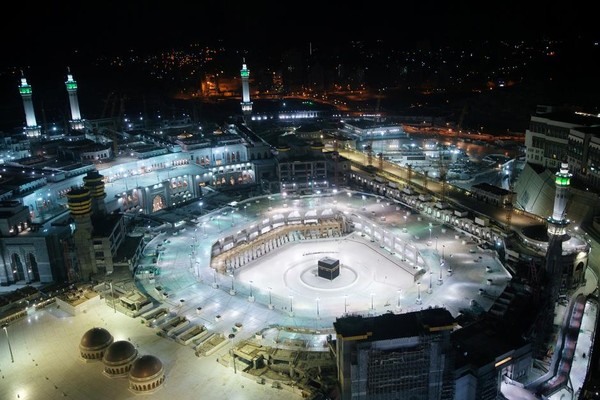In most cultures, religious institutions play a central role in everyday life. People seek guidance from their religious groups on many matters, however novel or complicated, to the extent that some regard religious advice more highly than the instruction of scientists and government officials. There have been many occasions throughout history when science and religion were at odds, and more often than not, the majority supported religion. As such, religious leaders today are in a uniquely important position as the whole world attempts to ward off the coronavirus pandemic.

Historically, many religious groups are known to have carried out relief activities in times of disease outbreak and disaster. They considered it their duty to stay in the affected areas and help those in need. However, sometimes their only way of providing help was by resorting to prayer and worship — to seek mercy and forgiveness. It was therefore deemed crucial to continue religious practices and congregations even amid such unfortunate circumstances. These traditions have continued, but not always for the best. For illnesses that spread through normal social contact (like COVID-19), large gatherings will merely exacerbate the situation.
Vaccination, one of our best weapons against diseases, is often confronted with hostility from religious groups throughout the globe. Although no major religion directly opposes vaccination, many smaller groups have a long history of presenting antagonism. In recent years, largely eliminated diseases such as measles have resurged as a consequence of vaccine hesitancy. Particularly, communities in the US that are faced with these outbreaks are the ones refusing vaccination for religious reasons. Polio, a crippling and life-threatening disease that has been eradicated in most parts of the world, still persists in Afghanistan, Nigeria, and Pakistan. Unsurprisingly, in each of these countries, there is major opposition to vaccination, on religious grounds. Along similar lines, throughout Europe and the US, stem cell research is faced with considerable religious opposition. Likewise, many religious groups have opposed — as an incentive towards abstinence — research initiatives to find cures for sexually transmitted infections. However, such opposition always leads to greater suffering and death as the infections increase.
Today, as we struggle to overcome the coronavirus pandemic, major religious organizations and denominations throughout the world have offered their support to the governments dealing with the crisis and to all the scientists and professionals looking for solutions. However, sometimes their unrelenting faith keeps them from being fully cooperative, and so today we find some religious leaders refusing to close their places of worship and attempting to fight the virus with prayer alone. They continue to organize large congregations, and many have even called the virus a conspiracy against their religion that must be fought through collective rituals. At the moment, churches in some of the hardest-hit states in the US are still allowed to hold congregations. Throughout Africa and South America, pastors have dismissed social distancing advisories — often with government backing.
The consequences of this noncompliance have been disastrous: in the US, health officials in the state of California have linked 71 cases of COVID-19 infection — one of the largest outbreak clusters in the country — to a megachurch that had continued to hold regular services. In South Korea, another incident occurred in March where nearly 50 church worshippers were infected with the virus after being sprayed with contaminated saltwater, which was ironically intended to safeguard them from the disease. This comes after the infamous Shincheonji incident, where hundreds of people from a secretive sect were infected. In Pakistan and Malaysia, large missionary conventions have led to massive spread of the virus throughout the countries and abroad. Similarly, there has been an explosive increase in cases in Brazil, where churches were exempted from containment measures.
A large increase in cases is also expected from Africa and South America, due to religious congregations. In some countries, notably Brazil and Tanzania, churches have been officially exempted from containment guidelines. In Brazil, this has contributed to an explosive increase in the number of cases. Sadly, the countries that will be the most affected by this willful ignorance are also the ones that have the weakest healthcare systems.
The current crisis is unlike any in recent memory, in terms of its sheer spread, the number of deaths, and its damage to the global economy. The countries most ill-prepared and ill-equipped to deal with this pandemic are often also the ones most affected by religious extremism, further compounding the consequences. There is currently no vaccine or cure for coronavirus, so prevention through social distancing is our only option against this epidemic. Those who attempt to thwart the containment measures endanger everyone. National authorities must rise to the occasion and prevent such cults from hampering humanity’s efforts to bring life back to normalcy. For now though, the behavior of these religious leaders will go a long way towards determining when we come out of this crisis.

